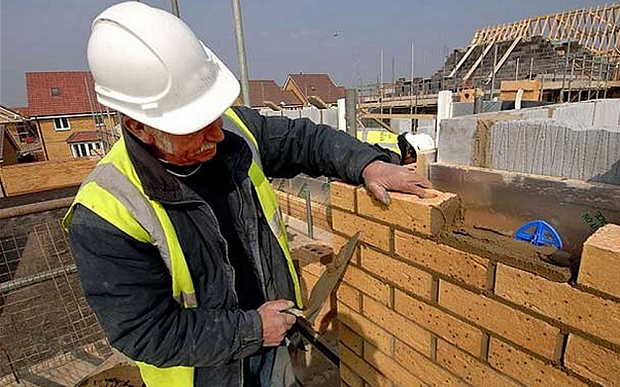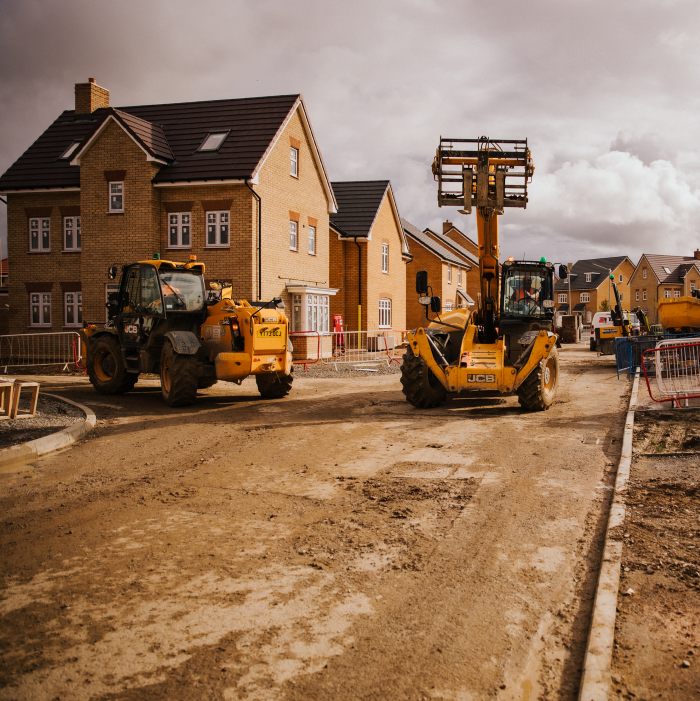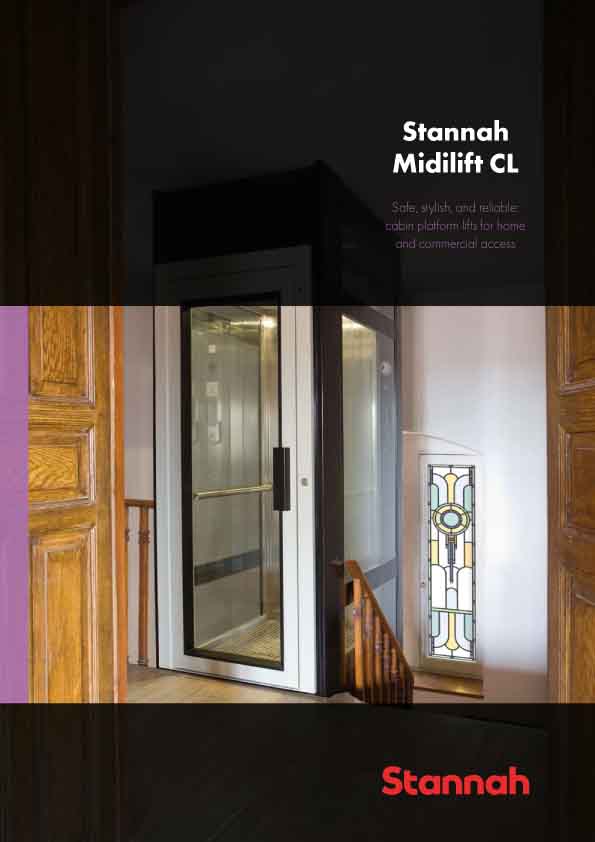A major overhaul to
the National Planning Policy Framework has been launched to deliver the homes
the country needs.
Maximising the use
of land, strengthened protections for the Green Belt and a greater emphasis on
converting planning permissions into homes are at the heart of new planning
reforms, launched by the Prime Minister to deliver the homes the country needs.
The government has
already delivered more than a million homes since 2010, and last year saw the
biggest increase in housing supply in England – over 217,000 new homes – for
almost a decade.
Although significant
progress has been made, we must do more to deliver 300,000 homes a year by the
mid-2020s. More planning permissions need to be fast tracked into homes for a
generation of first time buyers locked out of the housing market and our increasing
older generation need the right homes designed to their needs.

A major
overhaul to the National Planning Policy Framework, the first in 6 years,
has been launched today providing a comprehensive approach for planners,
developers and councils to build more homes, more quickly, in the places people
want to live. Councils and developers will now be required to work with community
groups to ensure those affected by new developments will have a say on how they
look and feel.
In a move to ensure
that swift and fair planning decisions are made at appeal an end to end review
of planning inquiries is also planned.
The planning reform
package is part of a wider package of housing reforms; building on the recent
£5 billion Housing
Infrastructure Fund announced to help unlock new homes in areas with the
greatest housing need.
The government has
already allocated £866 million to 133 council led projects to fund key local
infrastructure including new roads, cycle paths, flood defences and land
remediation work, all essential ahead of building the homes.
The best way to speed
up housing delivery is to get more small builders back into the market and
focus more attention on the potential of smaller sites, according to the
Federation of Master Builders (FMB)
In response to the
Prime Minister’s speech, Building a Britain fit for future, Brian
Berry Chief Executive of the FMB, said: “Small sites tend to deliver
more quickly and smaller builders, for whom short term financing is more of a
concern, have every incentive to build and sell quickly. More opportunities for
these smaller developments will diversify the market, boost capacity and speed
up delivery. The Government has clearly recognised this, and is today setting
out a raft of changes to national planning policy that will encourage more
small sites to come forward. We particularly welcome the move to ensure that at
least 20% of the sites identified for housing in local authority’s plans are
smaller sites.
“However, we also need
to be aware that the pace of building homes cannot be simply dictated. Those
whose business is building houses have very few incentives to just sit on land.
SME builders in particular have every incentive to build and sell as quickly as
they can, so that they can recoup their investment and move on to the next
project – nothing else would make financial sense. But developments can be
stalled and slowed down for perfectly good reasons – from the financing
difficulties which can often affect smaller builders, to downturns in market
conditions. Building a house is a very significant investment, and house
builders who build without being sure they can sell, don’t stay in business
very long.
“There is reason to
push back against developers who have a particularly poor track record of
delivery, and those who seek planning permissions purely for speculative
purposes, but the Government needs to make sure that rhetoric doesn’t get ahead
of reality. It should recognise that attempts to force building at a rate which
makes poor commercial sense could end up slowing down delivery. This could end
up discouraging rather than incentivising the SME builders and new market
entrants we need to diversify the market.”
RIBA
welcomes several of the revisions made to the National Planning Policy
Framework (NPPF) outlined by the Prime Minister at today’s launch, however
stronger action is needed to support public sector investment in housing and
prioritise design quality.
RIBA
President Ben Derbyshire
says: “While there is much to welcome in these proposals, the stark truth
remains that the housing crisis will not be solved without major direct
investment by the Government and Local Authorities in housing and
infrastructure.
“We
are pleased that the Government have listened to the RIBA and others about the
importance of good design in new housing. The NPPF makes numerous positive
suggestions that will support the ambitions of architects and developers to
build more high quality, sustainable and affordable new homes.
“The
proposals to change the rules on viability and developer contributions should
provide greater certainty for developers and communities and lead to more
transparent relations between those looking to build new houses and those who
already live in the area. This is something the RIBA and others have long been
calling for and we hope the proposals will be welcomed by the whole sector.
“The
problems caused by developers who overbid for land and then use commercial
confidentiality to avoid building affordable housing or providing the necessary
infrastructure is a source of huge delay and destroys the trust that is vital
to securing community support for new housing.
“The
Prime Minister was right to recognise the critical importance of turning
planning permissions into new homes. Urgent action must be taken on delays in
the planning system such as the overuse of planning preconditions which hinder
development cause design quality to suffer."
Responding to new
planning laws Lord Porter, Chairman of the Local Government Association, said:
“In the last year, councils and their communities granted nearly twice as many
planning permissions as the number of new homes that were completed. Councils approved
more than 321,000 new homes in 2016/17, while there were around 183,000 new
homes added in the same year. More than 423,000 homes with planning
permission are still waiting to be built.

“The truth is that
councils are currently approving nine in 10 planning applications, which shows
that the planning system is working well and is not a barrier to building.
Nearly three-quarters (73 per cent) of planning refusals are upheld on
appeal, vindicating councils’ original decisions.
“It is completely
wrong, therefore, to suggest the country’s failure to build the housing it
desperately needs is down to councils. The threat of stripping councils of
their rights to decide where homes are built is unhelpful and misguided.
“The last time the
country delivered 300,000 homes which this country needs each year, in the
1970s, councils were responsible for more than 40 per cent of them and it’s
essential that we get back to that. In order for that to happen, councils have
to be able to borrow to build homes again.
“It is essential
that councils and their communities are empowered to ensure local development
creates prosperous places, that new homes are good quality and affordable, and
that they are supported by crucial services and infrastructure such as roads
and schools.
“No-one can live in
a planning permission. Developers need to get on with building affordable homes
with the needed infrastructure and councils need greater powers to act where
housebuilding has stalled.
“The Government must
also end national policies that undermine the local voice of councils and
communities. This includes scrapping permitted development rights that allow
developers to convert offices into homes without planning permission, which
accounted for one in 10 new homes last year.
“Ultimately, the
private sector will never build enough of the homes the country needs on its
own. The Government must back the widespread calls, including from the Treasury
Select Committee, for council borrowing and investment freedoms to spark a
renaissance in house building by local government.”
After supporting the
Government’s ambitions to better resource planning departments, the NFB had
hoped to see more comprehensive revisions to planning guidance. This will
hopefully feature in the Letwin Review because the planning process remains the
major barrier to growth in the industry.
Richard Beresford,
chief executive of the NFB, said: “The Government can do more to tackle the
housing crisis, but it needs the entire housing supply chain to support its
drive as well as challenge its ambition.”
“We would like to see
the Government more ambitious on planning reform and the green belt, but we
welcome the direction the NPPF review has taken. Local government has a big
part to play in enabling the right homes in the right places.”





















